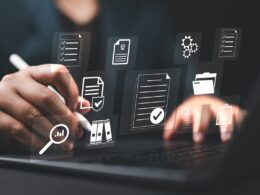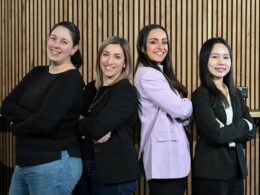Artificial Intelligence (AI) and automation are transforming industries across the globe, and Malta is no exception. As businesses integrate AI-driven tools to improve efficiency and decision-making, the role of employees is evolving. For HR and Learning & Development (L&D) professionals, the challenge is clear: how can we ensure that human talent remains relevant and engaged in an AI-powered world?
The impact of AI on the Maltese workplace
From chatbots handling customer service to AI-powered analytics streamlining operations, automation is changing the way businesses function. While these advancements boost efficiency, they also raise questions about the future of human roles.
Rather than replacing employees, AI is shifting job responsibilities. Routine, repetitive tasks are increasingly automated, allowing employees to focus on creative problem-solving, critical thinking, and strategic decision-making. However, this shift requires a proactive approach to reskilling and upskilling employees to equip them for emerging roles.
To remain competitive, Maltese companies must invest in continuous learning. Here are key strategies for HR and L&D professionals to ensure employees thrive alongside AI:
Develop AI literacy
Employees should understand AI’s capabilities and limitations. Basic AI literacy training will help staff work effectively with new technologies rather than fear them.
Focus on soft skills
As automation takes over technical tasks, human skills—such as emotional intelligence, adaptability, leadership, and creativity—will be more valuable than ever. Training programmes should prioritise these areas.
Create personalised learning paths
AI can enhance L&D itself by offering personalised training programmes that adapt to an individual’s learning pace and career aspirations. Leveraging AI-powered learning platforms ensures more effective skill development.
Encourage a culture of continuous learning
Upskilling should not be a one-time effort but an ongoing process. Companies must foster a culture where learning is encouraged and rewarded, ensuring employees remain engaged and future-ready.
Collaborate with educational institutions
Partnering with universities and training providers can help bridge the skills gap, ensuring that education aligns with the evolving needs of the industry.
The role of HR in leading the AI transition
HR teams are at the forefront of managing this transformation. By integrating AI-driven HR tools—such as predictive analytics for talent acquisition or AI-assisted employee engagement surveys—HR professionals can make data-driven decisions while ensuring a human-centred approach.
Moreover, HR has a crucial role in change management. Employees must be reassured that AI is not a threat but a tool that enhances their capabilities. Transparent communication and clear career development opportunities will be essential in easing the transition.
The future of work is not about AI versus humans—it is about AI and humans working together. For Maltese businesses, success will depend on how well they balance technological advancement with human skills development. By prioritising upskilling, fostering adaptability, and leveraging AI to enhance—not replace—human talent, companies can navigate this transformation effectively.
For HR and L&D professionals, the message is clear: the time to act is now. Investing in the workforce today will ensure that businesses, and their people, are ready for the workplace of tomorrow.













